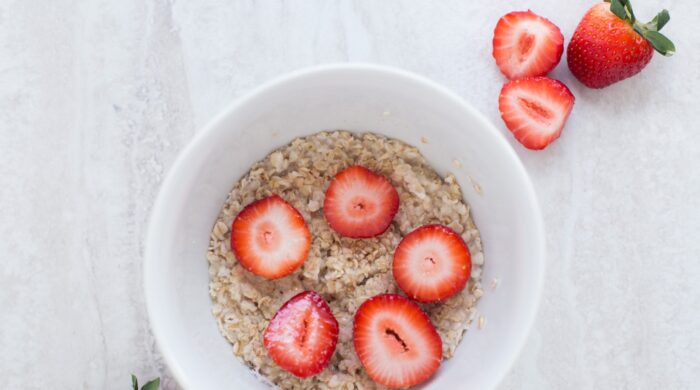There are many buzz-worthy health topics that bubble to the top of the news cycle regularly. One of them is the ongoing conversation about high cholesterol: How to control high cholesterol, how to manage high cholesterol and what causes high cholesterol.
In this post, we’ll sort out the difference between good and bad cholesterol, examine the root causes of bad cholesterol, explore the damage that can be done by not managing it and offer ways to fight it.
What is the difference between good and bad cholesterol?
You may have heard that there are both good (HDL) and bad (LDL) forms of cholesterol. This is true, but it’s often confusing to know which is which and why one is good vs. bad.
Let’s clear that up:
Lipoproteins are the proteins on which cholesterol travels through the blood.
A High Density Lipoprotein (HDL) absorbs the cholesterol and delivers it to the liver. Once the liver receives it, it flushes the cholesterol from the body. This is considered the good form of cholesterol, because it can reduce the risk for stroke and heart disease.
An excessive amount of Low Density Lipoprotein (LDL) can build plaque on the walls of blood vessels, which has the potential to dangerously block the blood flow to the heart. This can increase the risk for stroke and heart disease. Hence, why it’s thought of as the bad cholesterol.
What causes high cholesterol?
There are multiple factors that can cause high cholesterol:
- Genes. Some people are unfortunately born with genetic mutations that can make it harder for them to flush LDL cholesterol from their blood. There’s also a condition called hypercholesterolemia, a form of hyperlipidemia, that causes high levels of LDL in the blood.
- Diabetes. The high blood sugar that accompanies diabetes damages the lining of arteries, plus contributes to high levels of Very Low Density Lipoprotein (VLDL).
- Obesity. If you have a Body Mass Index (BMI) that is 30 or greater, you’re at risk for high cholesterol.
- Diet. Eating trans fats (mostly found in processed foods like cookies and crackers), red meat, full-fat dairy products and other items high in saturated fats can lead to an elevated risk of high cholesterol.
- Smoking. Those who smoke are prone to a higher accumulation of fatty deposits, because smoking causes damage to the blood vessel walls. Smoking also has the potential to lower your good cholesterol.
- Age. As you get older, your liver becomes less able to remove LDL cholesterol, thereby naturally increasing the risk.
- Medicines. Some medicines used to treat patients with acne, HIV, lupus, psoriasis and other ailments can increase cholesterol levels. If you suspect your medicines could have side effects that contribute to high cholesterol, check with your doctor to confirm.
- Sedentary Lifestyle. If you don’t get regular exercise and lack physical activity you’re at a greater risk for high cholesterol.
How does high cholesterol affect your health?
It’s important to reduce high cholesterol because of the risk for serious health issues if left untreated. These are a few of the complications that can result from high cholesterol:
Carotid artery disease is the buildup of plaque inside the carotid arteries (major blood vessels in your neck). This can cause severe chest pains and lead to a stroke.
Strokes, which happen when a blockage occurs that prevents oxygen-rich blood from getting to a portion of the brain, can cause paralysis, brain damage or even result in death.
Heart attacks, which stop the blood flow to part of your heart, can cause dizziness, pain and fatigue, and if not treated in time, can also result in death.
How can you combat high cholesterol?
The good news is that there are several ways to lower high cholesterol:
Diet. Eating a plant-based diet, rich in soluble fiber, will help you combat high cholesterol. That may include the following foods:
- Oats/oat-based cereals
- Whole grain breads and barley
- Beans
- Okra and eggplant
- Apples, grapes and strawberries
- Citrus fruits
Plus, eating fish rich in Omega-3 fats such as salmon or mackerel two or three times a week can help fight high cholesterol and protect the heart. You can also snack on foods with good fats, such as avocados and nuts.
Exercise. Get plenty of exercise to stay within your target weight range, which will reduce your risk for diabetes and obesity.
Stop Smoking. If you don’t smoke, don’t start and if you do smoke, quit.
Medicines. If lifestyle changes have been made and your cholesterol levels are still worrisome, speak to a professional about medications that may help.
Where can additional help be found?
If you’d like coaching on how to treat high cholesterol, consult with one of our Primary Care Providers. For diagnostic testing, request an appointment with our specialists in the Cardiology Department.
